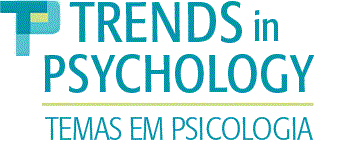Abstract
Mentalizing capacity refers to people’s ability to interpret their own and other’s behavior in terms of mental states. This can be accomplished through implicit mentalizing, which tends to be employed by people most of the time, tends to be procedural and generally requires minimal attention and reflection. This study sought to assess the implicit mentalizing of nursery teachers that work with babies between four and eighteen months of age in Early Childhood Education schools. Four nursery teachers participated in the study. The following instruments were employed: Sociodemographic and Professional Data Questionnaire and video recordings of observation sessions - analized through the indicators teachers’ response in the babies’ actions; and references to mental states in the teachers’ vocalizations. The results indicated that two of the participants stood out positively, while the other two exhibited greater difficulties. These results are discussed, along with factors that potentially interfere with mentalizing capacity. The study points out the importance of future research on the subject, focused on developing instruments and planning interventions aimed at improving mentalizing capacity so as to promote mental health.
Keywords:
Mentalization; teachers; daycare nursery
